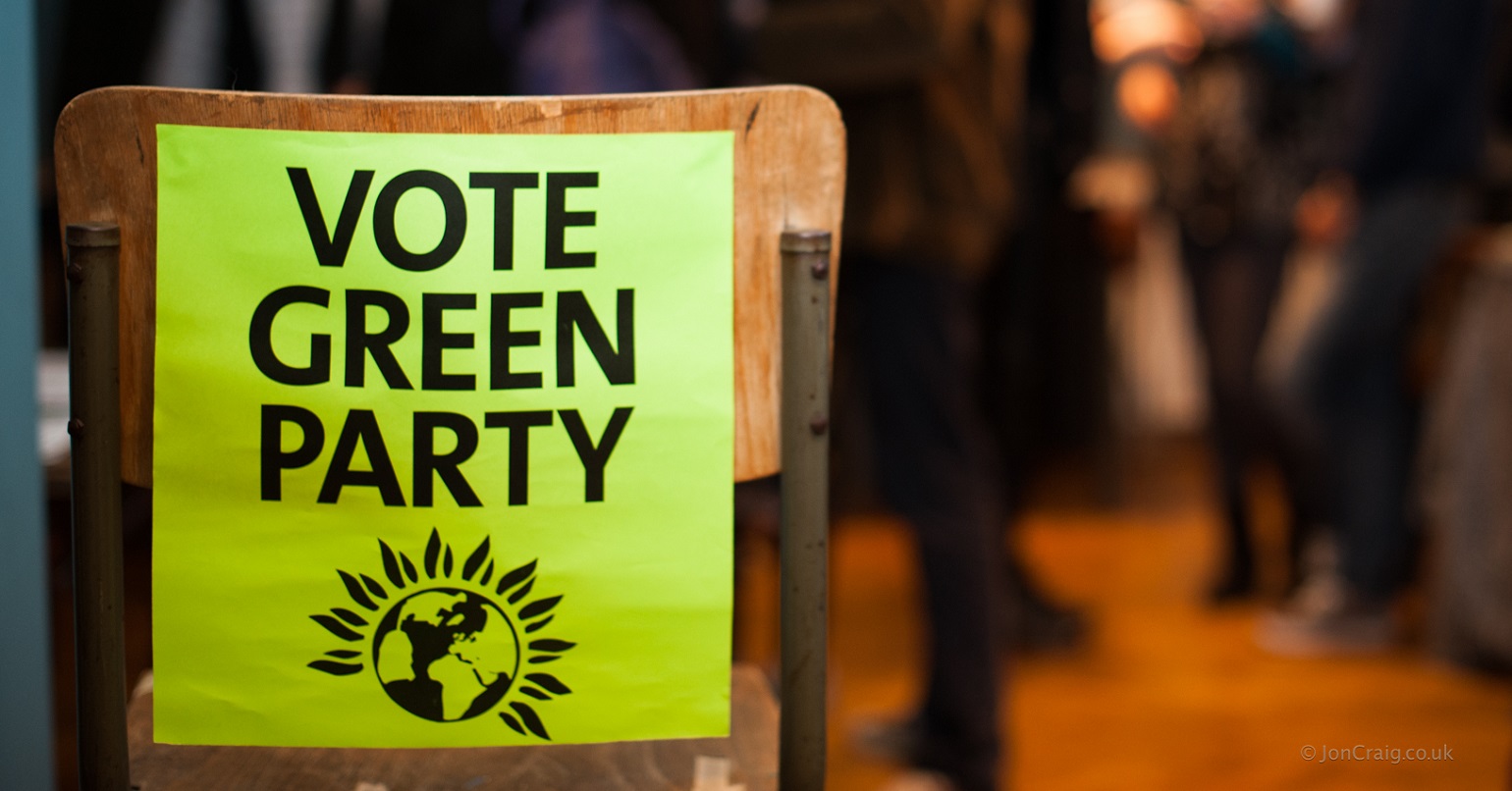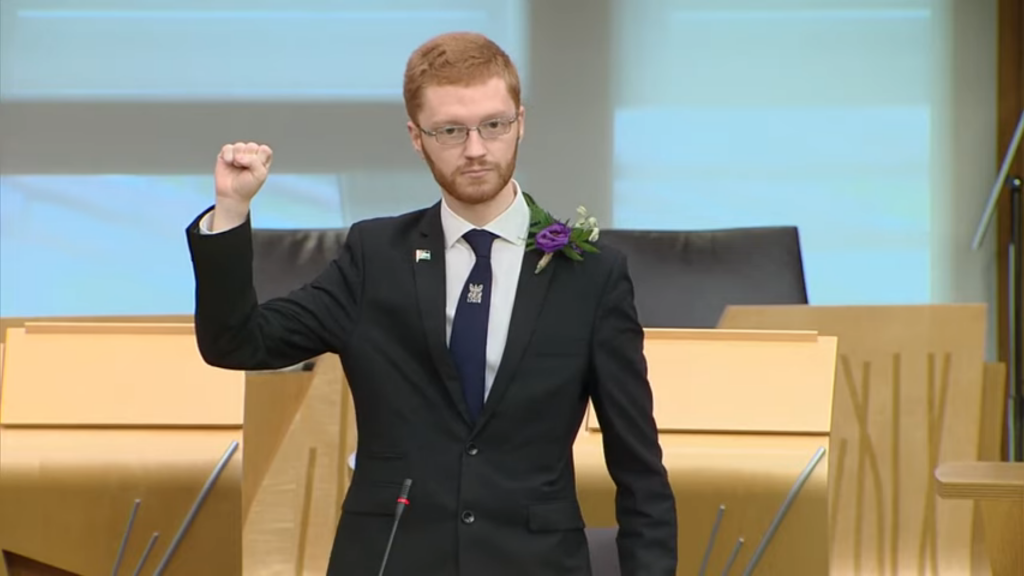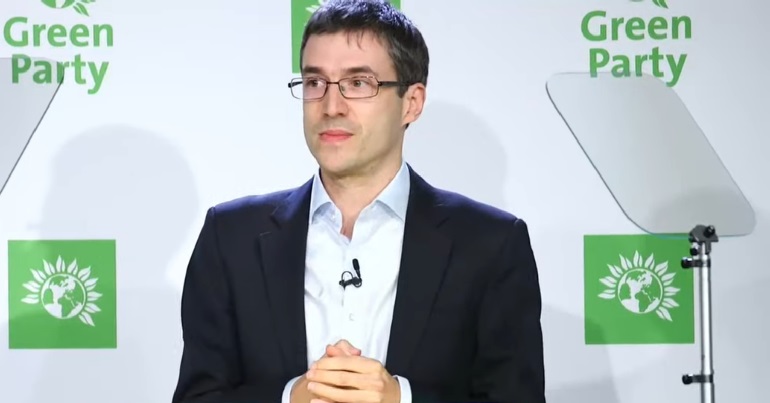Why socialists should join the Green Party #8: The Greens don’t rig candidate selections

Where should socialists put their energy in 2023? This is a question facing many on the left.
There are some obvious answers. The wave of industrial militancy that has swept across the country has necessitated a solidarity movement alongside it. Campaign groups like Enough is Enough have provided a space for people to begin organising for the economic transformations the country needs. With the climate crisis getting ever more urgent and a socialist solution to it ever more necessary – leftists have an important role to play within the climate movement.
These are all vital movements for the left to be organising within. But most socialists accept that while the collective struggle of social movements and of organised labour are crucial to building a new society, these movements also need a political expression. They need a political organisation able to fight elections, assume political office and – ultimately – wield state power. Since Keir Starmer’s ascension to the top of his party, it is abundantly clear that political expression will not and cannot come from Labour.
Instead, it must come from elsewhere. For a growing number of people – including more than a dozen left wing ex-Labour Councillors, Jeremy Corbyn’s former spokesperson, and outriders and influencers of the Corbyn era – that political expression of the tsunami of rebellion sweeping across the country, the political expression of socialism, will come through the Green Party.
In light of that, our editor Chris Jarvis is writing a weekly column setting out why disaffected socialists should join the Green Party.
The Greens don’t rig candidate selections
In a previous article in this series, we looked at the Green Party’s internal democracy and how that compares with Labour’s. That article focused on the ability for members to shape the party’s policy platform. Equally important is the process for selecting candidates for elections.
The Labour Party’s selection processes have reached new levels of notoriety in recent months. Left wing candidates across the country are being blocked from standing for parliamentary seats for the most spurious of reasons. Often, the alleged infractions from the would-be MPs include having liked innocuous Tweets from figures from other political parties. In one instance, the well respected Lauren Townsend was told she wouldn’t be able to stand because – among other reasons – she had liked a tweet from Nicola Sturgeon in which she had announced she had tested negative for Covid-19. As Momentum’s head of communications Angus Satow has highlighted, the same standards are very clearly not being applied to candidates on the centre or right of the party.
Labour’s bureaucracy blocking candidates from the left from standing for selection isn’t confined to Westminster seats. It’s also filtering down to selections for Council candidates too. Examples such as Cal Corkery – previously the leader of the Labour Group on Portsmouth City Council – illustrate the point well. He was deselected mere months before the local elections. His crimes? Liking a Facebook page and sharing a post on Facebook which celebrated increasing Labour membership.
That’s just the tip of the iceberg. In Leicester, 40% of sitting Labour Councillors were told last week that they wouldn’t be able to stand in the upcoming elections.
As has been argued by others at great length, all of this is part of an attempt to centralise selections within the Labour Party, reduce the influence members have over their own party and to marginalise the left. The intention is in the short term to prevent left wing candidates from getting selected and taking office, and in the long term to extinguish the left from any positions of significance within Labour.
Many will recognise this in the approach Keir Starmer has taken to his predecessor as Labour leader. This article is being published on the eve of the National Executive Committee meeting which will likely see Jeremy Corbyn blocked from standing as a Labour candidate at the next election. The motion which Starmer has proposed would see the man he once described as a ‘colleague and a friend’ prevented from standing as a parliamentary candidate appears to cite only one reason for taking this step – that he failed to win a general election. This despite fellow election losing former Labour leader Ed Miliband sitting in Starmer’s shadow cabinet.
It all stinks of a stitch-up – of a leader seeking to drag the party to the right, to purge the left and to obtain power at any cost. Unscrupulous and Machiavellian in the extreme. This hostile attitude to internal democracy combined with an aggressive anti-left agenda is creating a well-documented toxic environment for the socialists who have remained within the Labour Party.
By contrast, the experience of leftists within the Green Party is largely positive, as ex-Labour Councillors who have defected to the Greens have found. The democratic culture in the party is far better than that within Labour.
When it comes to candidate selections, that democratic culture means that local parties and their members’ autonomy are respected. There are no centrally approved longlists or shortlists. There is no political interference preventing candidates from making it onto the ballot paper. Socialists aren’t blocked from standing for the Greens – they’re standing in huge numbers in this year’s local elections, they’re in Council chambers up and down the country and they’ll be on parliamentary ballot papers at the next general election too.
PS. We hope you enjoyed this article. Bright Green has got big plans for the future to publish many more articles like this. You can help make that happen. Please donate to Bright Green now donate to Bright Green now.
Image credit: Jon Craig – Creative Commons




Leave a Reply